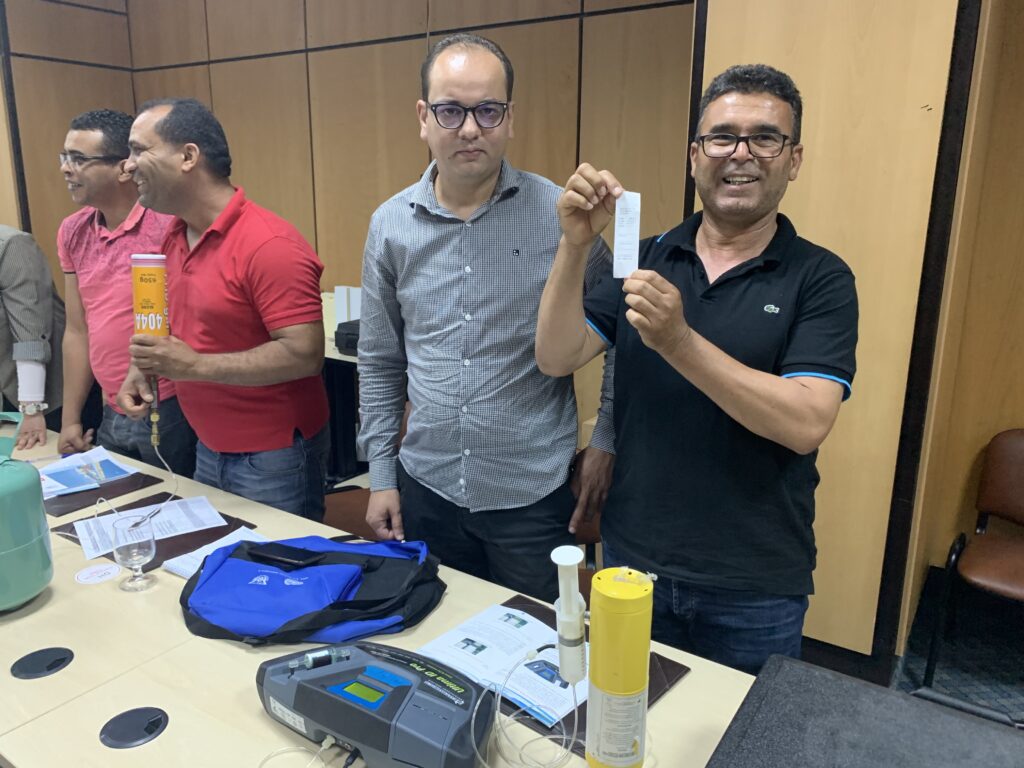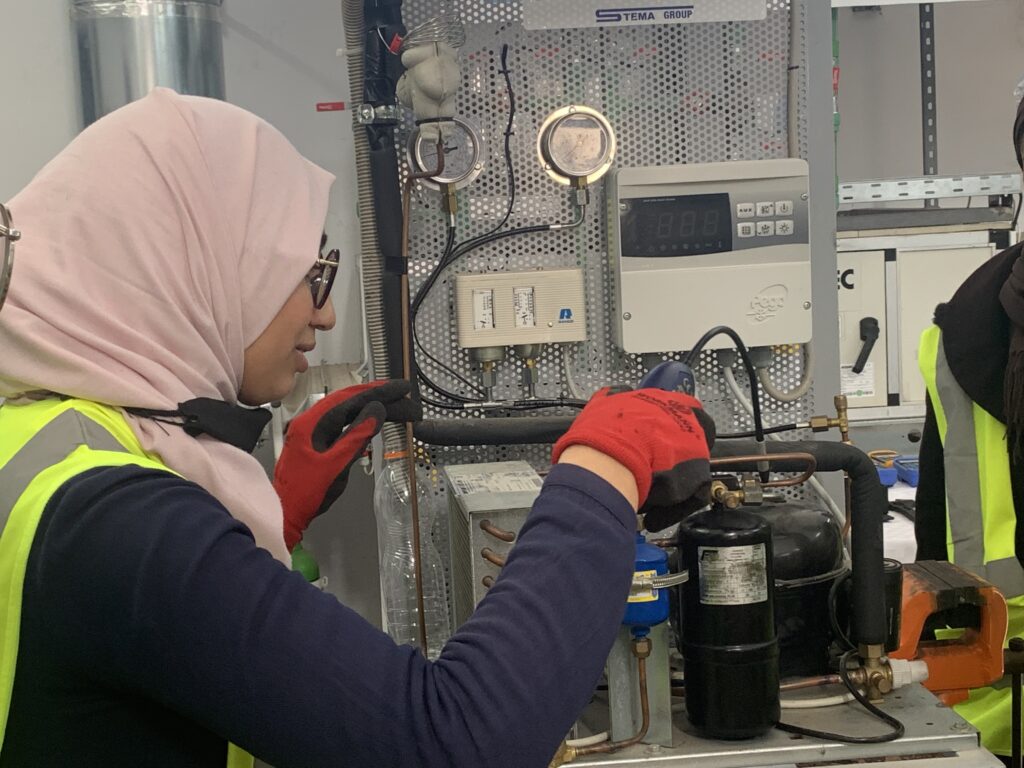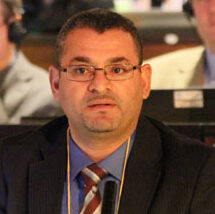Tunisia continues its efforts for the phase-out of Hydrochlorofluorocarbons (HCFCs) through the HCFC Phase-out Management Plan (HPMP) project, and is preparing for the implementation of the requirements under the Kigali Amendment related to the phase-down of Hydrofluorocarbons (HFCs), substances that do not have ozone depleting potential (ODP), but are powerful greenhouse gases (GHG).
The reduction in the consumption of HCFCs reached 41.68% at the end of 2021. However, at the same time Tunisia recorded a significant increase in the demand for HFCs substances, in particular HFC-410A and HFC-404A, used in the individual air conditioning (AC) sector and in the commercial refrigeration sector. This imposes a big challenge for the Tunisian Government in its efforts to find adequate solutions to protect the environment from the emission of substances into the atmosphere and also to preserve economic interests.
In this context, and in close collaboration with UNIDO and UNEP, Tunisia has carried out an action plan from 2021 aimed at accelerating the reduction of HCFCs and HFCs through investment projects and non-investment projects (such as building national capacities for refrigeration and air-conditioning (RAC) technicians, customs officers, etc.).
Investment projects
Two (02) conversion projects for industrial units in the rigid polyurethane foam sector with an aim to eliminate 68 MT of HCFC-141b premixed in the polyol, i.e. equivalent to 49,300 TCO2eq.
Conversion of a manufacturing unit for domestic refrigerators
The company Grand Atelier du Nord (GAN) operating in the manufacture of domestic refrigerators converted in 2021 by switching from HCFC-141b to the use of pentane as a blowing agent for the polyurethane foam production line.

Conversion of a sandwich panel manufacturing unit
This project is being implemented at the company “Société Le Panneau” for the elimination of 14.5 MT of HCFC-141b with an aim to replace it with HFO-1233zd as a blowing agent for the injection of polyurethane sandwich panels.

Non-investment projects
The non-investment projects carried out in 2021 and 2022 mainly concern the establishment of a national system for the recovery, recycling and reclaiming (RRR) of HCFCs and HFCs type refrigerants, the training of Tunisian customs trainers and the training of technicians operating in the RAC sector on good management and handling practices for fluorinated refrigerants.
Establishment of a national system for the recovery, recycling and reclaiming of refrigerants (RRR)
As part of preparing for the reduction in the consumption of HFCs following the ratification of the Kigali amendment (August 2021), Tunisia started in 2021 the project to establish a national system for recovery, recycling and reclaiming (RRR) of refrigerants. Two (02) centers are planned to be established, one center in Tunis, and one center in Sfax (southern Tunisia). In this context, the technical-economic model for the management of this field as well as the regulatory framework have been prepared and were presented to the actors in the RAC sector during the workshops carried out in June, September and October 2021.

Training of Tunisian customs trainers
A training session for Tunisian customs trainers was carried out in May 2021. At this training participated thirteen (13) trainers representing the different regions of Tunisia. This training session aimed to further strengthen the technical skills of customs officers with regard to the control of imports and exports of substances regulated by the Montreal Protocol, in particular fluorinated refrigerants (HCFCs, HFCs).
Theoretical training modules have been developed by the National Ozone Unit of Tunisia, and the training has touched the theoretical and practical aspect, such as using identifiers / analyzers of refrigerants.


Strengthening the technical capacities of technicians operating in the RAC sector (2021)
In total, eighteen (18) training sessions for technicians operating in the RAC sector were carried out in 2021, held in six (06) training centers provided by certified trainers with the assistance of CSG (CENTRO STUDI GALILEO, Italy), allowing to train 135 technicians in good management and handling practices for fluorinated refrigerants (leak detection, brazing, refrigerant recovery, refrigerant analysis, etc.).




The distribution of technicians trained by training center is represented in the following graph:

Organization of training and awareness days on the reduction of HFCs
The National Ozone Unit of Tunisia organized in collaboration with the Tunisian Association of Refrigeration and Air Conditioning (ATRC), four (04) regional training and awareness days on the requirements of the Kigali amendment for the reduction HFCs in the RAC sector.

Preparation of a national strategy on the reduction of HFCs
The Executive Committee of the Multilateral Fund of the Montreal Protocol, approved at its 88th meeting (November 2021) the financing of the preparation of the Tunisian strategy for the reduction of HFCs. Preparatory activities have started (selection of consultants, workshop…) in the beginning of 2022, with a view to preparing the sector studies necessary to develop this strategy.

Youssef Hammami
